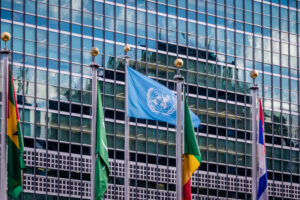WHO’s annual assembly ends with agreement on funding, and an array of health topics


WHO’s 76th health assembly closed Tuesday, May 30, having addressed a vast array of issues, including behavioural sciences; best buys for non-communicable diseases; diagnostics; disabilities; drowning prevention; emergency, critical and operative care; food micronutrients; indigenous health; infection prevention and control; maternal and child health; medical oxygen; primary health care; refugee and migrant health; rehabilitation; traditional medicine, and WHO’s work in responding to dozens of emergencies while working with Member States to be better prepared to face new ones.
Earlier in the day, delegates in Committee A agreed to note the roadmap towards the Global Health and Peace Initiative (along with a slight change in name from “Global Health for Peace Initiative”), and requested that the Director-General report on progress in strengthening the roadmap.
In plenary, as the final approval step of the assembly, delegates adopted the resolutions and decisions of the two committees, and adopted their reports. This included approval of the budget for 2024-25, and a 20% increase in assessed contributions. The committee chairs and representatives from two regions spoke to recognize the work and progress of this Assembly.
In his closing remarks, Dr Tedros Adhanom Ghebreyesus, WHO’s Director-General, noted that “the increase in assessed contributions and the investment round are historic and a huge milestone.” He spoke about the year ahead, with high-level meetings on universal health coverage, tuberculosis and pandemic preparedness and response at this year’s UN General Assembly. He pointed to the continuing negotiations on the pandemic accord and amendments to the International Health Regulations as unprecedented—“generational”—opportunities to learn from the mistakes of the COVID-19 pandemic and ensure they are not repeated.
Delegates also had the chance to hear from former WHO staff Gwen Carnelley, who turned 100 this year, who began working with WHO in 1949, just a year after WHO was founded 75 years ago.

